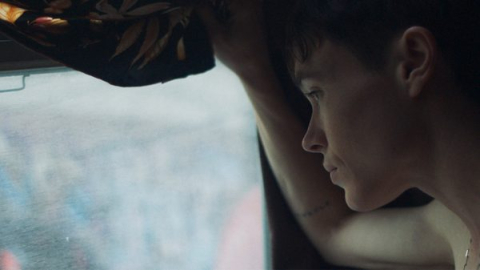Review of Close To You (2023)

Close to You is a film about transgender adulthood, about the hometown you’ve grown out of, and about the people that grew up without you. Co-writers Elliott Page and Dominic Savage share a heart-wrenchingly honest and personal story following Sam, a trans man who returns to his childhood home for the first time in five years. I was struck by how Close to You tells a queer story that is familiar but less heard. The film explores the experience of having a family that is accepting but doesn’t quite understand, one that is still learning and going to make mistakes.
The story is a simple one, contained to a small cast of characters. Mundane situations are made larger than life while still retaining their normalcy and accessibility. As Page shared in an interview with Variety, much of the film is comprised of a 53-minute long improvised take. I found that the natural clumsiness of improv lent itself well to the film’s atmosphere. When family members tell a joke, it isn’t a polished quip, it’s something stupid to break the tension. When Sam and an old friend flirt, it’s dorky. The dialogue felt authentic, like a real family just trying to get through a tense dinner party together.
Another striking quality of the film is its affinity to extreme closeups. Many shots are of Page’s face, captured from forehead to chin, an effect even more pronounced on the big screen. Each of his microexpressions are translated clearly, and we feel it when someone intrudes on Sam’s personal space as if it were our own. Contributing to the film’s loving portrayal of mundanity, its color grading highlights the natural beauty of the Ontario suburbs: the view out a train window, a sunset as seen from a swingset, the streetlights of a downtown strip. These scenes glow with a familiar melancholy.
Close to You explores the challenges in reconnecting with a family that claims to know you best, even when you look and feel like a completely different person since you left them. It questions the hierarchy of family versus independence, togetherness versus self-respect. For a queer viewer of any age —whether still living at home, searching for a new one, or settled with a ‘found family’— the conflict is familiar and relevant.
Page and Savage have delivered on an empathetic portrayal of the trans experience, one that feels heart-breaking and healing at the same time.
